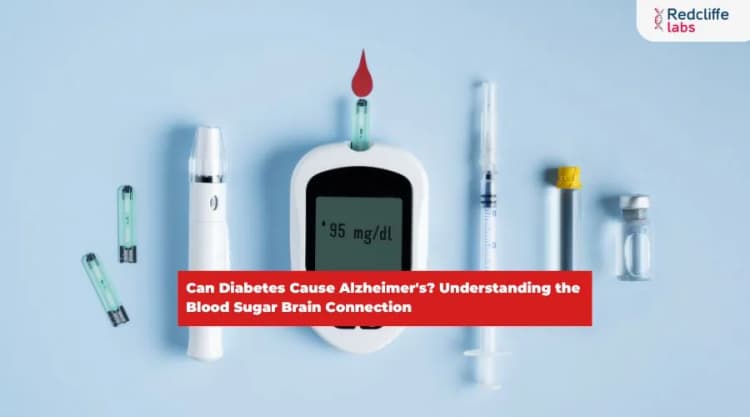Blood
Unlock special
discount on
this package
Login to Unlock 🔓
NABL Accredited lab*

Booking Benefits Unlocked Worth FREE 799

Report Consultation

Diet Plan
*Available once your report is generated.
At Redcliffe Labs, we have a single goal: to give India its right to quality diagnostics.
Customers served
Tests Processed Everyday
Cities
Collection Centres
World Class In-house Labs
Home Collection Experts
1 Test Parameters
Direct Coombs Test (DCT)
1 PARAMETER INCLUDED
1 PARAMETER INCLUDED
- Direct Coombs Test (DCT)
Top Booked Health Checkup Packages
Reports in 12 hours
|Parameters 94
Reports in 12 hours
|Parameters 89
Reports in 12 hours
|Parameters 96
Reports in 12 hours
|Parameters 96
Reports in 12 hours
|Parameters 90
Helps you know your test better
Q. What is a Direct Coombs Test?
Q. Is there any preparation needed for the Direct Coombs Test?
Q. What is the direct coombs test price ?
Q. Are there any risks associated with dat coombs test ?
Verified by Medical Expert

WRITTEN BY
Komal Daryani

MEDICALLY REVIEWED BY
Dr. Mayanka Seth
Table of Content
Introduction to Direct Coombs Test (DCT), Whole Blood EDTA Test
Your body has antibodies that save your RBCs from germs. The Direct Coombs Test examines antibodies that may stick or affect your red blood cells. Antibodies are proteins produced by the immune system when it detects something unusual in the health. The DTC is an immunology laboratory procedure that detects the presence of antibodies against red blood cells in the body.
Early detection can prevent severe health illness. Seek medical consultation if you are feeling signs such as fatigue, chilly hands and feet, pale skin, or breathing issues. Based on your symptoms and reports, the doctor may suggest your Direct Coombs test. Grab the Direct Coombs test from Redcliffe Labs for just INR 449. The Direct Coombs test price is as per market size, i.e., affordable and reasonable.
Test Details in Brief
| Also Known As | Direct Antiglobulin testing, |
| Purpose | To detect antibodies attached to RBCs to diagnose autoimmune hemolytic anemia & blood disorders. |
| Preparation | Stay hydrated to prevent any hindrance. |
| Fasting | The test needs no fasting. |
| Reports Within | 36 Hours |
| Cost | INR 449 |
Purpose of Direct Coombs test
The Direct Coombs test monitors red blood cells and detects if antibodies are attached to or attacking them. It also diagnoses blood-related conditions, such as autoimmune hemolytic anemia. Individuals with autoimmune hemolytic anemia don’t have enough red blood cells because their bodies destroy them too soon. The Direct Coombs Test identifies causes of low red blood cell count.
What is the Direct Coombs Test used for?
Direct Antiglobulin Testing (DAT) is used to detect symptoms that indicate trouble related to their blood. The Direct Coombs test uses are:
- To diagnose anemia or jaundice
- Hemolytic disease of the newborn
- Transfusion reaction
- Erythroblastosis fetalis
In the test, a sample of the patient's red blood cells is mixed with anti-human globulin (Coombs reagent). If the red blood cells clump together (agglutinate), it indicates that antibodies or complement proteins have been attached to them, confirming a positive result.
Direct Coombs test is used to detect the condition in children. A Doctor may also recommend the test for children or babies.
For Babies or Children
For babies with yellow skin or eyes who may have hemolytic diseases, the doctor may recommend the Direct Coombs test. The mother’s antibodies can attack babies' red blood cells. In such cases, doctors may use the Direct Coombs Test. To perform this, the doctor might prick the skin on the heel of the foot with a lancet (small sharp needle).
Signs and Symptoms of Direct Coombs
There are no specific symptoms indicating direct coombs. The test detects symptoms to specify health conditions. Here are the symptoms of the Direct Coombs Test:
- Hemolytic Anemia
- Autoimmune Hemolytic Anemia
- Hemolytic Disease of newborn
- Transfusion Reactions
- Infection through drug reaction
Signs of Direct Coombs Test include:
- Pale skin
- Shortness of breath
- Destroyed red blood cells
- Fatigue
- Pallor
- Jaundice
- Anemia
- Dark urine
- Enlarged spleen
- Rapid heartbeat
- Enlargement of the liver
- Fever or chills
- Rash
- Back pain
- Dizziness
Benefits of Direct Coombs Test
Along with detecting red blood cell functionality, the Direct Coombs test has several other benefits. These include:
- Detect antibodies stuck on the red blood cells
- Diseases or medicines that can cause this.
- Know the hemolytic disease of the newborn
- Systemic lupus erythematosus
- Alloantibodies-mediated hemolytic transfusion reaction
- Autoimmune hemolytic anemia.
These are some benefits anyone can avail of from the Direct Coombs Test. Redcliffe Labs offers the Direct Coombs Test for INR 449, which is affordable for every Indian citizen. Better book the test and get yourself tested without any delay.
How To Book The Direct Coombs Test From Redcliffe Labs?
Booking the Direct Coombs Test from Redcliffe Labs will take a few minutes. We are available in PAN India with 80+ labs and 2000+ collection centers. Our presence and B2C service make us affordable and accessible for everyone. The procedure to book the test is simple. You can book the test from our website or our mobile app, which is available on both the Play Store and App Store.
Search for ‘Redcliffe Labs’ and get over our website. Search for the test you wish to book. We have 3600+ tests. Download our app and follow the same steps. You can search for ‘Redcliffe Labs near me’ and you will find our nearest lab. Get over there and get yourself tested. You will find our phlebotomist. You can try this by booking the Direct Coombs Test.
Why Would A Doctor Recommend The Direct Coombs Test?
A physician may suggest the Direct Coombs Test for various reasons, most frequently for diagnosing and treating blood-related illnesses. The following are some typical situations:
- Suspected Autoimmune Hemolytic Anemia (AIHA): The Direct Coombs Test can confirm the diagnosis if a patient exhibits symptoms such as fatigue, jaundice, or an enlarged spleen and there is a suspicion that their immune system is inadvertently destroying red blood cells.
- Examination of Hemolytic Illness of the Newborn (HDN): This test can assist in identifying whether maternal antibodies are influencing the baby's red blood cells if there are indications that a newborn may be suffering from hemolytic illness because of blood type incompatibility (such as jaundice soon after birth).
- Post-Transfusion Reaction: If a patient experiences a reaction following a blood transfusion, the Direct Coombs Test can determine whether an immunological response occurred against the transfused red blood cells.
- Assessment of Unexplained Anemia: The Direct Coombs Test can identify whether an immune-mediated process causes anemia in a patient without a known etiology.
- Verifying Autoimmune disorders: This test might help clarify the diagnosis in situations where hemolysis may develop as a secondary consequence, such as systemic lupus erythematosus (SLE) or other autoimmune disorders.
The test helps determine whether antibodies or complement proteins are linked to red blood cells, which is essential for properly diagnosing and treating these disorders.
Preparation for the Direct Coombs Test
The Direct Coombs Test needs no special preparation. But, to remove any obstacle in the Direct Combo reports, remember the following points. They can provide correct test reports:
- Follow a regular diet—The test does not require dieting. It is better to follow a normal diet. If you are following a diet, say keto, consult your doctor to determine whether to follow it or not.
- Drink Enough Water—The least you can do for yourself is Drink at least 8 glasses of water a day. The human body needs at least 4 liters of water a day. Make sure to keep yourself hydrated.
- Limit Exercising- If you are a gym enthusiast, limit excessive exercise. It is better to exercise at a limit so that your body's muscles, hormones, and strength remain stable.
- Avoid Harmful Substances- Alcohol and smoking can hinder test reports. These substances affect our metabolism negatively, so it is better to avoid these substances.
- Stay calm and relaxed- People usually panic before the test, but the Direct Coombs Test is a simple blood test. This means there is no need to panic. Further, clear all your doubts with the healthcare professional.
- Practice Meditation- Meditation, yoga, and deep-breathing exercises all help keep the mind stress-free. Wake up early and perform yoga or meditation to avoid even hindrances in reports.
Direct Coombs Test Procedure
The Direct Coombs Test procedure is simple. To get the Direct Coombs test, book the test from our website to get ahead. Our phlebotomist follows a simple test. Here is a brief of it.
- For some patients, veins in the wrist or hand may be used if arm veins are inaccessible.
- Place a tourniquet around the upper arm, a few inches above the selected site, to engorge the veins with blood and make them more visible.
- Do not leave the tourniquet on for more than 1-2 minutes to avoid affecting the blood sample.
- Use an alcohol wipe to clean the area where the needle will be inserted.
- Allow the skin to air dry to prevent discomfort and to ensure proper antiseptic action.
- Hold the needle at a slight angle (15-30 degrees) and insert it swiftly into the vein.
- Ensure you are in the vein by pulling back on the plunger to check for blood return.
- Attach the blood collection tube to the needle or use a vacuum to draw the blood into the tube.
- If multiple tubes are needed, follow the order of draw to avoid cross-contamination.
- After collecting the required amount of blood, they carefully withdraw the needle while applying gentle pressure with gauze over the puncture site.
- Immediately dispose of the used needle and other sharps in a proper container.
- They apply pressure to the puncture site with gauze to stop any bleeding and to reduce the risk of bruising.
- Once bleeding has stopped, apply a bandage to protect the site.
Risks Associated with the Direct Coombs Test
The Direct Coombs Test has no or minor risk associated with it. Our DMLT-certified phlebotomists are experts in conducting a smooth test. However, here are the risks associated with the Direct Coombs test:
- Weakness
- Dizziness
- Excessive blood loss
- Skin infection
- Nausea
- Vomiting
- Bruising
- Hematoma
What Does Abnormal Direct Coombs Test Results Mean?
The normal range of the Direct Coombs Test is 0 to 4 units/mL. If the range fluctuates upwards, it indicates a positive direct coombs. A positive test result displays antibodies attached to red blood cells. Even if the reports show numbers within the normal range, your doctor may suggest an Indirect Coombs Test.
Reasons for abnormal test results:
- Infectious mononucleosis
- Autoimmune hemolytic anemia
- Syphilis
- Lupus
- Mycoplasma infection
- Chronic lymphocytic leukemia
- Transfusion reaction
- Erythroblastosis fetalis
- Infections (HIV, malaria, mononucleosis, and syphilis).
- Drug toxicity
- Advanced age
Direct Coombs Test Price
The Direct Coombs Test price is just INR 449. It is accessible and affordable across India through a robust network of many labs and collection centers.
Our comprehensive test menu covers routine, genetic, and specialized tests. We have served 4 million patients. Routine test results, including the Direct Coombs Test, are delivered on the same day, while specialized tests may take 2-3 days.

Direct Coombs Test (DCT) Cost in Different Cities - Redcliffe Labs
| City Name | Discounted Price |
| Delhi | ₹449 |
| Ahmedabad | ₹449 |
| Mumbai | ₹449 |
| Bangalore | ₹449 |
| Noida | ₹449 |
| Pune | ₹449 |
| Lucknow | ₹449 |
| Hyderabad | ₹449 |
| Chennai | ₹449 |
| Gurgaon | ₹449 |
| Jaipur | ₹449 |
| Faridabad | ₹449 |
| Indore | ₹449 |
| Patna | ₹449 |
Note: We also offer Direct Coombs Test (DCT) PAN India. Please call the number 8988988787 to check the availability of our services in your area.
Book Direct Coombs @ Redcliffe Labs
The Direct Coombs Test is essential for diagnosing immune-related conditions affecting red blood cells. If you experience symptoms of anemia or suspect hemolytic disease, timely diagnosis is crucial. Consult your healthcare professional, who may recommend this test to ensure accurate treatment and management.
Redcliffe Labs offers 3600+ tests at an affordable and accessible price. Our test price includes testing, sample collection, diagnosis, and test reports. Our labs follow NABL and ISO guidelines. Further, we follow the Six Sigma process to ensure 100% accurate test results.
Don’t let anything hold you back from taking control of your health. Book the Direct Coombs Test price at just INR 449 with Redcliffe Labs.
5 Simple Steps to Manage Your Health with Redcliffe Labs
Quick, Simple & Convenient; trusted care delivered to your doorstep.

Start Your Online Booking
Open the Redcliffe Labs website/app. Select the test or package and enter your details. Schedule the service for your preferred slot.

Live Tracking
Stay updated with real-time tracking for a smooth and timely home sample collection.

Sample Collection
Our certified experts ensure a smooth, hygienic, and fully compliant sample collection experience.

Doctor-Verified Smart Reports
Every report is clinically checked by expert doctors and shared with smart, actionable insights.

Your Health Journey Continues Post Reports
Consult with our expert medical team to get actionable insights to improve your health.
Nearby Labs(9)
Redcliffe Labs Noida

MC-5280
Redcliffe Collection Center
Redcliffe Collection Center
Redcliffe Collection Center
Redcliffe Collection Center
Redcliffe Collection Center
Redcliffe Collection Center
Redcliffe Collection Center
Redcliffe Collection Center
Frequently Asked Questions
What is the Direct Coombs Test?
Why is the Direct Coombs Test performed?
How is the Direct Coombs Test different from the Indirect Coombs Test?
What conditions can the Direct Coombs Test detect?
How is the Direct Coombs Test performed?
Are there any risks associated with the Direct Coombs Test?
How do I prepare for the Direct Coombs Test?
What do positive results in the Direct Coombs Test indicate?
What do negative results in the Direct Coombs Test mean?
Can medications affect the results of the Direct Coombs Test?
How long does it take to get results from the Direct Coombs Test?
What should I do if my Direct Coombs Test results are abnormal?
Can I book a Direct Coombs Test (DCT), Whole Blood EDTA Test near me?
Can I book a home collection for a Direct Coombs Test (DCT), Whole Blood EDTA Test?
Health Articles & Blogs
My Health
Stay informed with our expert health articles and blogs. Explore comprehensive guides on diseases, nutrition, preventive care, and wellness tips to help you make better health decisions.
What to Drink to Lose Belly Fat in 1 Week

Can Exercise Really Treat Depression? What Research Says
Discover what research says about exercise and depression. Learn how physical activity may improve mood, reduce symptoms, and support mental health.

Is It Good to Eat Dried Cranberries Every Day? Benefits & Risks
Discover the health benefits and potential risks of eating dried cranberries every day, including sugar levels and portion tips.

7 Health Screenings Every Woman Above 30 Should Get Done Annually

Fat vs Muscle: Are they Different?

Can Managing High Blood Pressure Lower Uterine Fibroid Risk?

Debunking Epilepsy Myths: What Everyone Should Know

Can Diabetes Cause Alzheimer's? Understanding the Blood Sugar Brain Connection
Explore the link between diabetes and Alzheimer’s disease. Learn how high blood sugar may affect brain health, memory, and long-term cognitive function.
Explore My Health
